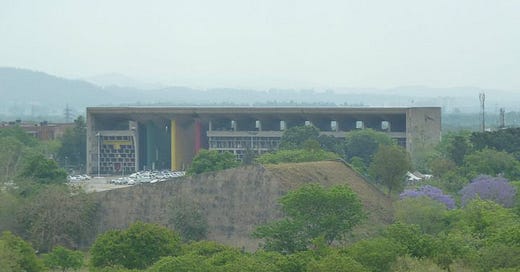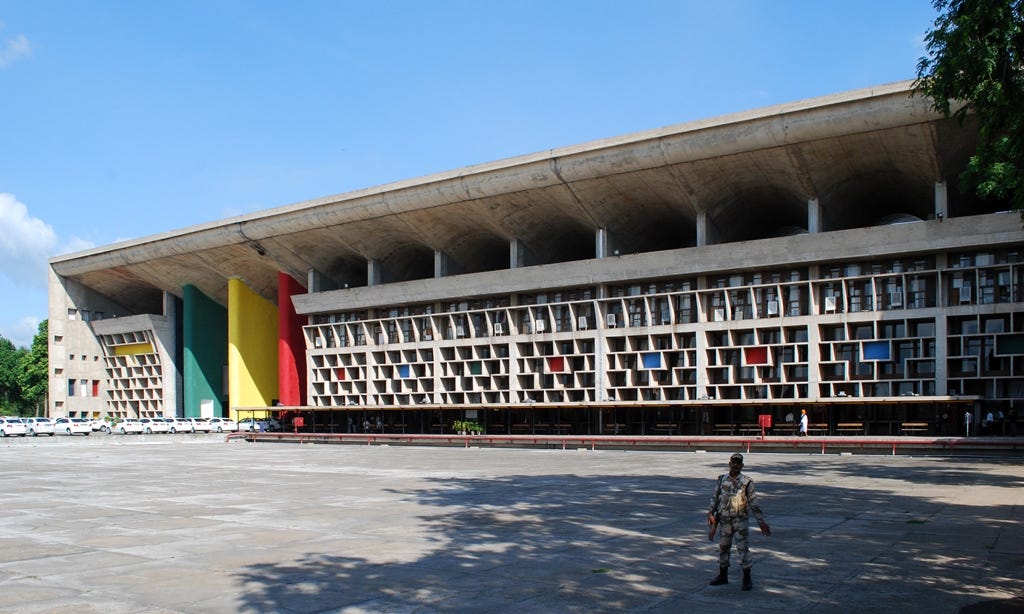Punjab and Haryana High Court Demands Detailed Breakdown of Expenses under Key Budgetary Heads
Top Punjab Bureaucrats in Hot Water Over "Ayushman Bharat Fund" Rs 500 Crore Reimbursement Delay.
Top Punjab Bureaucrats in Hot Water
In a significant development, top officials from Punjab's Finance and Health Departments are in the dock following an order by the Punjab and Haryana High Court over delayed reimbursements to private hospitals under the Ayushman Bharat scheme, where free medical treatment had already been provided to beneficiaries. In a detailed and scathing 9-page order dated September 23, 2024, Justice Vinod S. Bhardwaj issued a notice to the bureaucrats for failing, without any reasonable cause, to disburse payments amounting to nearly Rs 500 crore to these hospitals1. The Indian Medical Association (IMA) Punjab, along with other private hospitals, had filed a Civil Writ Petition seeking the release of these long-overdue funds, essential for maintaining uninterrupted healthcare services under the flagship Ayushman Bharat scheme of the Government of India.
Ayushman Bharat Scheme: Funding and Compliance
The Ayushman Bharat Pradhan Mantri Jan Arogya Yojana (PM-JAY), launched in 2018, is one of the largest health assurance schemes globally, providing coverage of up to Rs 5 lakh per family annually for secondary and tertiary care hospitalisation. Under the scheme’s funding model, the Union government contributes 60%, while state governments cover the remaining 40%. Both public and private hospitals empanelled under the scheme offer cashless treatment to eligible beneficiaries.
Despite the Centre releasing its share of Rs 355.48 crore up to the financial year 2023-24, Punjab has not disbursed these funds to the hospitals. This failure has led to financial strain on private hospitals, jeopardising healthcare services for the scheme’s beneficiaries.
Key Points from the High Court Order
Pending Payments and Liability Acknowledgement
The High Court highlighted that despite over Rs 500 crore in pending bills, the state has only released Rs 26 crore, with no clear explanation for the delay. The Court emphasised that the state’s own replies confirm their liability for the remaining amount. While the state’s Health Agency acknowledged owing over Rs 500 crore as of December 18, 2022, it has failed to clarify why the undisputed amount has not been paid to the petitioning hospitals.
Centre’s Contribution and State’s Non-compliance
The Union Government has met its obligations by releasing over Rs 355 crore for the scheme. The Learned Additional Solicitor General of India contended that the state not only failed to release its own 40% share but also perhaps misutilised the funds provided by the Centre. This accusation has raised concerns about potential misapplication, if not misappropriation, of funds intended for healthcare.
Salary Attachment of Four Health Department Officiers
In a sharp rebuke, the High Court ordered the attachment of the salaries of senior officials, including Kumar Rahul, IAS, Principal Secretary, Department of Health; Ms. Babita, Chief Executive Officer of the State Health Agency; Mr. Deepak, Director; and Ms. Sharanjit Kaur, Deputy Director, until the next hearing. This extraordinary measure reflects the Court’s dissatisfaction with the officials’ handling of the funds and their failure to resolve the issue despite receiving the Union Government’s contribution and pending litigation in the High Court.
Ensuring Administrative and Financial Accountability Through Affidavits
In its continued scrutiny of the Punjab Government’s handling of Ayushman Bharat funds, the High Court has sought two detailed affidavits to ensure transparency and accountability. These affidavits are essential for uncovering the full extent of the state’s fund disbursement and utilisation amidst allegations of mismanagement and diversion of funds.
Affidavit on Payment Details: A Comprehensive Financial Disclosure
The first affidavit, to be filed by the Principal Secretary of Health and Family Welfare or the Chief Executive Officer of the State Health Agency, must provide a detailed account of payments made against the bills submitted by empanelled hospitals from December 30, 2021, to September 24, 2024. It must specify the dates when payments were made, the amounts disbursed, and the recipients of those payments. This disclosure is critical for tracing the flow of funds and determining whether hospitals were paid promptly for the services rendered and also potentially uncover whether there has been a pick-and-choose in release of funds where the bills stand verified.
Before considering punitive action against the officials accused of misdirecting funds, the High Court has accentuated the need for this detailed financial response. The affidavit must also clarify whether the funds received from the Union Government were utilised as intended or diverted to other purposes, contrary to the terms of the Ayushman Bharat scheme.
Affidavit on Broader Financial Expenditure: Ensuring Accountability Beyond Healthcare
In addition to the affidavit on payment details, the High Court has mandated a second affidavit from the Principal Secretary of Finance. This affidavit will provide transparency across broader financial expenditures from December 2021 to September 2024. The affidavit must break down expenses under the following categories:
Advertising Expenses: The affidavit must detail expenditures on advertisements in print, audio, and video media, specifying the states and languages where these advertisements were broadcasted or published. The court seeks to examine whether funds intended for healthcare were instead misused for promotional activities.
Renovation Costs: The affidavit will disclose renovation expenses for the houses and offices of Class-I officers, Ministers, and Members of the Legislative Assembly (MLAs) in Punjab, as the court investigates whether funds were diverted to non-essential luxury projects.
Vehicle Purchases: Expenditures on new vehicles for Ministers, MLAs, and Class-I officers must be specified, including the make and model, as the court assesses the state's financial prudence.
Litigation Costs: The affidavit will also include litigation expenses incurred by the state in legal battles at the Supreme Court of India and Delhi High Court, ensuring that these costs do not overshadow essential healthcare services.
Social Welfare Expenditures: Finally, the affidavit will compare the state’s expenditure on social welfare schemes like free electricity and the Atta Dal Scheme against the budgetary allocations for these programmes. This will help determine whether funds allocated for healthcare were channelled into politically favoured, if not motivated, schemes.
High Court’s Firm Stand: A Warning to Bureaucrats
The High Court's demand for these affidavits signals a rigorous sampole audit of the state's financial and administrative compliance. The Court has made it clear that further delays or attempts to withhold information will not be tolerated, and more severe measures, such as contempt proceedings or financial penalties, may follow.
“The aforesaid information is being sought currently for examining as to whether the funds/grants received for any specific purpose are being misapplied or misutilized or not. The State, having received money for any specified purpose, is a custodian of said money only to release it to the actual beneficiaries and certainly cannot be permitted to retain the amount leaving the citizens litigating for their dues and misappropriate the said grants at the costs of the actual recipient.”
This extract from the court order underscores the legitimate judicial annoyance, if not frustration, with the state bureacucarc’s inaction and mismanagement, emphasising that any retention or misappropriation of funds will be dealt with sternly.
Implications for Governance and Compliance
This case underscores significant governance challenges in the implementation of large-scale welfare schemes like Ayushman Bharat. Punjab's failure to comply with the scheme’s guidelines could lead to serious legal and administrative repercussions. The High Court’s stance may set a precedent for increased scrutiny of other pending liabilities of the state, including pensionary benefits for retired employees and payments to contractors for completed works, where the liability to pay has already been admitted. The detailed financial disclosures demanded by the court could compel state government departments across the board to adopt more transparent mechanisms in managing both central and state funds, ensuring strict adherence to budgetary provisions and the specific heads of allocation.
Summing Up
As the October 16, 2024, hearing approaches, Punjab’s top bureaucrats must provide satisfactory explanations or face potential contempt proceedings and further stringent orders. The High Court's firm stance signals a growing judicial commitment to ensuring that public welfare schemes are not derailed by financial mismanagement or bureaucratic inertia. This approach aligns with a series of recent Supreme Court judgments, where the apex court has underscored the uniform application of the rule of law, prioritising public interest, transparency, and the inclusion of marginalised sections of society, while ensuring accountability of the public servants in high places.
The detailed order was uploaded today.






ਗ਼ੁਨਾਹਗਾਰ ਮੁੱਖ ਮੰਤਰੀ ਤੇ ਕੇਜਰੀਵਾਲ ਐਕਸ਼ਨ ਅਫ਼ਸਰਸ਼ਾਹੀ ਤੇ
ਕਰੇ ਕੋਈ ਤੇ ਭਰੇ ਕੋਈ
ਨਾਂਨੀ ਖ਼ਸਮ ਕਰੇ ਦੋਹਤਾ ਚੱਟੀ ਭਰੇ